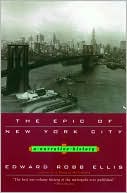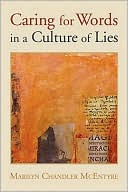Breakfast at Tiffany's: Book Review
[This book review was written for a college writing class assignment. I was asked to write a brief essay examining a piece of literature set in New York City. In his story, Capote writes of the City: "They must see this, these lights, this river – I love New York, even though it isn't mine, the way something has to be, a tree or a street or a house, something, anyway, that belongs to me because I belong to it."]
A Review of Truman Capote's Breakfast at Tiffany's
The name "Holly Golightly" brings to mind an elegant Audrey Hepburn – slim and beautiful in a chic black dress. Hepburn recreated Truman Capote’s famous character in the 1961 film Breakfast at Tiffany’s and instantly became an icon of fashion. The film, however, presents a sugarcoated version of Capote’s original story. The 1958 novella is a harsher, cruder, and sadder glimpse of life in World War II-era New York City. Capote weaves a theme of alienation throughout the pages, examining the possibility of feeling terribly alone in a city of over twelve million people.
Told through the voice of an unnamed narrator, Breakfast at Tiffany’s follows the escapades of a young socialite, Holly Golightly, who, though she seems to have the world at her feet, tries to find a place where she belongs. The majority of the story takes place in “a brownstone in the East Seventies.” This is only a temporary residence for most of the characters. When the narrator returns to the brownstone years later, he finds only one resident still living there.
Just as the apartment is a temporary residence for the characters, so too are their relationships only temporary. The narrator and Holly become friends, but constantly argue. This tension drives the plot of the story. The narrator can see Holly’s life spiraling out of control, but seems powerless to do anything to save her.
He first meets Holly when she loses her key and rings him to open the front door for her. Later on, she requests entrance to his apartment through the window, explaining, “I’ve got the most terrible man downstairs.” This encounter reveals the most about Holly: she makes her living as a prostitute (wheedling money out of wealthy, older men) and she does not like to speak about her rather odd past (the narrator finds out later that she was a “hillbilly” and a child bride).
The plot of Breakfast at Tiffany’s is anything but new. It follows the basic outline of a romantic novel, though those looking for passion and romance will be disappointed. Capote is more interested in detailing the quiet friendship that develops between the narrator and Holly, rather than her flings with a number of rich millionaires. Further, Capote’s story is intensely realistic. Holly is hardly an innocent damsel in distress and she has no chivalrous knight in shining armor to rescue her.
Indeed, what makes Capote’s story unique is its frank portrayal of ordinary life. Most people will never find the romance they yearn for. Loneliness is a harsh reality – the narrator feels out of place at Holly’s parties, the reader feels as if he were eavesdropping on Holly’s personal life, and Holly herself ultimately finds that she is an outsider to the upper crust of New York City. This is what makes Holly’s pitiful cry all the more poignant – “Not knowing what’s yours till you’ve thrown it away.” It reveals the heart of this cautionary tale. There are two kinds of people in this world – those who find where they belong and those who do not; those who know what’s theirs and keep it and those who throw everything they love away.
Capote wrote his novella for those who are not afraid to examine the heartache and struggle of everyday life. His characters are believable and the dialogue is strong. However, everyday life does not always have a happy ending and, thus, Capote’s story is a bit more depressing than its film counterpart. Yet, this is also the reason why it surpasses the film and must be considered a literary masterpiece.
Labels: book reviews, bookish musings
Posted by Nicole Bianchi at 10:47 PM
![]()




 This is life seen through the eyes of a writer. A blog that critically examines literature, music, and film. NB, initials which coincidently coinside with the Latin words "nota bene" (mark well), belong to the blog poster, a bibliophile who likes to haunt libraries and book stores, talk about all things bookish, and ramble at any length on things regarding literature. Many of the articles posted here were written as essays for high school and college.
This is life seen through the eyes of a writer. A blog that critically examines literature, music, and film. NB, initials which coincidently coinside with the Latin words "nota bene" (mark well), belong to the blog poster, a bibliophile who likes to haunt libraries and book stores, talk about all things bookish, and ramble at any length on things regarding literature. Many of the articles posted here were written as essays for high school and college.






1 Comments:
First off, I loved your review of Breakfast at Tiffany's by Truman Capote. It's an excellent review and gave me new food for thought with regards to this novella... I just finished listening to the unabridged audio version of Breakfast at Tiffany's from Audible earlier today and was disappointed with it. I guess I was expecting something different after all the hype about it that I've heard over the years... For once, I found myself liking the movie version better than the book, which is a rarity for me. But after reading your thoughts about Breakfast Tiffany's, I'm finding that I actually like Breakfast at Tiffany's more than I did before reading your review. Maybe I should rewrite my blog post?! Here's a link to my review of Breakfast at Tiffany's: http://captivatedreader.blogspot.com/2014/08/breakfast-at-tiffanys-by-truman-capote.html
8/18/2014 9:25 PM
Post a Comment
<< Home